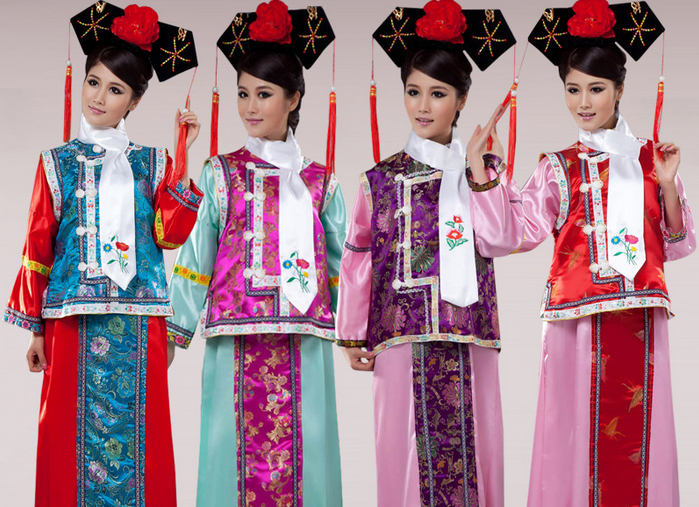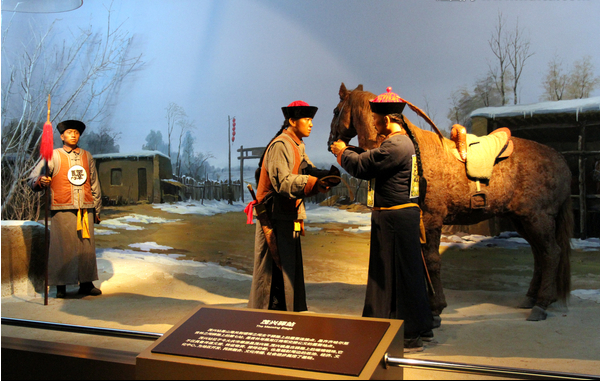
With a population of over 18,000 in Xinjiang, Manchu people scatter in the vast land but mainly live in Ili, Changji and Urumqi. The majority of them are descendants of garrisoned “eight-banner” battalions. Manchu soldiers were transferred by the Qing Court. Some immigrated from inland provinces. They have adopted conventions, customs as well as Mandarin as their spoken language. Most of Manchu people are engaged in education, hygiene and government service.
Before the 1911 Revolution, male Manchuans tied the back part of their hair so as to let it growing long and wore it in a plait or queue. The traditional costumes of male Manchuans are a narrow-cuffed short jacket over a long gown with a belt at the waist. Women coiled their hair on top of their heads and wore earrings, Qipaos (long gowns) and embroidered shoes. After the 1911 Revolution, male Manchuans abolished their plaits and women' Qipao (long gown) was adopted by Han women generally. Following the Manchuans' southward migration, the people came to wear the same variety of dresses as the Han people.
The Manchuans like cakes of glutinous millet and steamed buns are essential food for sacrifice. Festivals were traditionally celebrated with dumplings. Stewed mutton (mutton eaten with hands rather than chopsticks) is an indispensable dish at the eve of Lunar New Year. What is more, Manchu-style cookies were table delicacies of which “egg crisp cake” is one of the best.
A variety of manners were observed by the Manchuans. Children were required to pay formal respects to their elders. If they meet seniors, they must bow lightly with their hands at their sides, waiting for the seniors to pass. They not only must pay respect to seniors but also to elder brothers and sisters. Between friends and relatives, warm embraces are the commonest form of greeting for all men and women, and embracing the waist will be offered sometimes.
Their main festivals include the Spring Festival, the Lantern Day, Duanwu(Dragon Boat) Festival and Mid-autumn Festival. Horse jumping, skating, jumping onto galloping camels from the rear are their traditional sports held in holidays.




